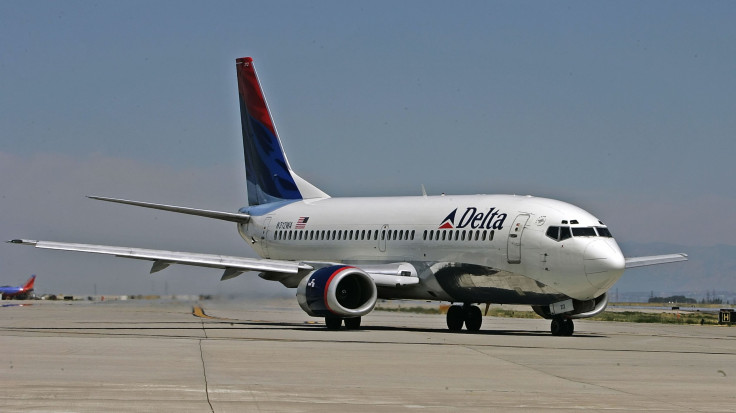Delta Airlines Passenger Charged $500 For Apple Flight Employee Gave Cost-Free

The United States Customs and Border Protection wants a Colorado woman to pay $500 for an apple that she received free of cost from a Delta Airlines employee.
Toward the end of a flight home from Paris, Crystal Tadlock was given an apple as a free snack by a Delta employee, FOX12 Oregon reported. As she wasn’t hungry at the time, she put the apple in her carry-on bag and forgot all about it. That is until she went through customs and an official randomly searched through her bag and found the apple. The date of the flight is not known.
“He asked me if my trip to France was expensive. I said, ‘Yeah.’ I didn’t really get why he was asking that question. And then he said it’s about to get a lot more expensive after I charge you $500,” Tadlock said.
She said she was shocked at being asked to pay fine and frustrated that the airlines did not make the passengers wary of any rule involving the snacks handed out on the flight. At the very least, the company should warn passengers not to take the snacks with them when they leave the flight, according to Tadlock.
“I understand the laws and the department of agriculture doesn't want certain insects in the U.S.,” she said. “But once again, the apple is from Delta and I think that's the most important part of this story.”
“The violation is for one apple,” she added. “It’s unfortunate someone has to go through that and be treated like a criminal over a piece of fruit.”
Delta Airlines issued the following statement regarding the incident: “We encourage our customers to follow U.S. Customs and Border Protection Protocols.”
A similar statement was released by a spokesperson for U.S. Customs and Border Protection: “Privacy policy prohibits U.S. Customs and Border Patrol from discussing details of any individual’s specific inspection, however, all agriculture items must be declared.”
Back in March, Delta Airlines was sued by Allison Dvaladze, a female passenger who claimed she was groped during an international flight and the airline gave her a cold shoulder about the incident.
Dvaladze said she was sleeping on an overnight flight from Seattle to Amsterdam in April 2016 when a man sitting beside her repeatedly grabbed her crotch. After yelling at the man to stop his advances, she got up from her seat and ran to the back of the plane only to be told by one of the members of the flight crew to “let it roll off your back.”
Due to the lack of support and action by the flight crew, Dvaladze said she decided to draw everyone’s attention to mid-flight assaults. “They were trying to be supportive, but it was obvious they had no clear guidelines,” Dvaladze recalled. “They wanted me to tell them. They asked me, ‘What do you want to do?’”
“A lot of airlines don’t want to be identified as the airline that has the problem,” Dvaladze added. “This is not an airlines specific problem this is an industry wide problem.”
© Copyright IBTimes 2025. All rights reserved.






















